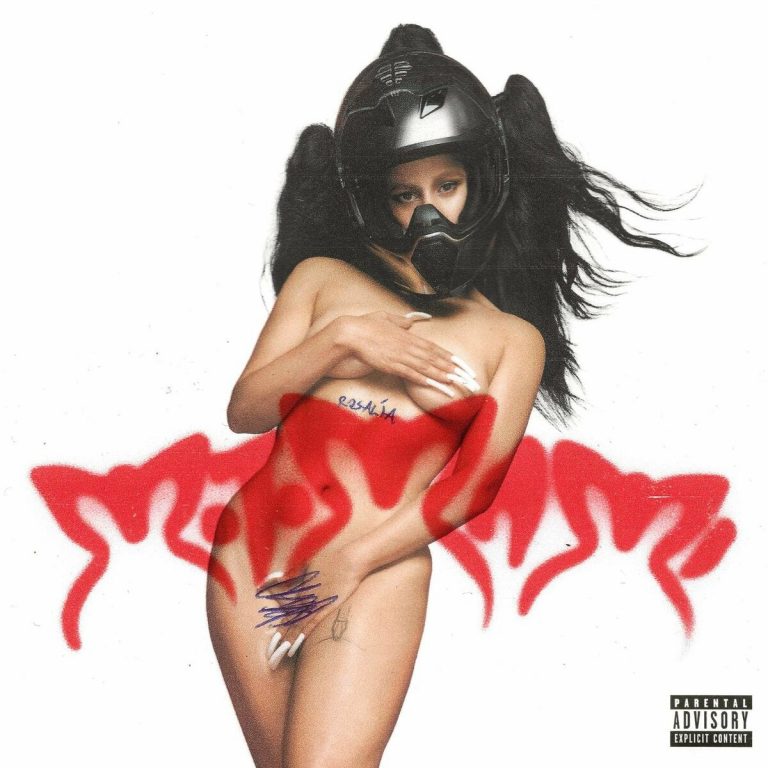A couple of years ago there was a terrific four-part PBS series called Latin Music USA, which broke down the huge legacy of genres like salsa, bachata, merengue, mambo, and reggaeton in American music. Although Latin influences are impossible to neglect whenever we talk about pop, more often than not we find the patronising postcolonial approach minimising their importance in what comes to shaping what we currently recognise as some of the biggest mainstream music trends throughout the past few decades.
It is however crucial to distinguish Latinx and Iberian heritages, especially in terms of embodiment and performance of one’s cultural identity; mixing them up is not only reductive but also disrespectful, the main reason being a key distinction between coloniser and colonised.
Yet Rosalía emerges from a curious merge of the two: as a proper Western millennial, she too was raised on a patchwork of MTV culture and centurial folklore, American imperialism and local relevance. From her hometown in Catalonia, she turned to traditional flamenco from an early age, eventually developing it technically and musically enough to incorporate her own take without coming across as blasphemous. And even though her 2017 debut LP Los Ángeles failed to produce deserved recognition, once El Mal Querer landed in late 2018 she quickly became the hottest act around.
So MOTOMAMI, despite being her third offering, was always at risk of suffering from second album syndrome. Pressure and expectations were at their highest, which added to Rosalía’s unique style and her singing in a language other than English could prove a double-edged sword: Would she be able to replicate El Mal Querer‘s success? Perhaps supplant it? Or instead deliver a record so underwhelming both the critics and the public would turn against her? Or, worse even, something so lukewarm it wouldn’t even foment much discourse around it at all?
Fortunately, MOTOMAMI is great. Initially treading carefully with relatively tame first single “LA FAMA” which featured The Weeknd, by the time Rosalía followed up with “SAOKO” (which for many of us raised on an overdose of Daddy Yankee’s “Gasolina” struck an instant emotional chord), the album seemed a sure promise.
Alternating shorter tracks with longer, more contemplative ones, MOTOMAMI is less implanted in flamenco heritage than its predecessor. Its aura shifts continents to absorb a more palpable Latin undercurrent instead of relying too much on the fatalist heaviness of flamenco, which was much more visible in her previous work. But Rosalía’s music still manages to integrate and showcase her roots, notably in the way it transpires a sort of miraculous suffering whose presence fits both a hungover morning after clubbing in Barcelona or the theatrical martyrdom of Semana Santa.
MOTOMAMI is Rosalía’s coming-of-age album. It represents a turning point in her career, a make-or-break threshold she would have to face eventually given the hype her previous album had imprinted onto her public image. Tackling the challenge head-on, she boldly experiments with rhythms, lyrics, concepts, and sonorities, communicating a need to grow and evolve that demands a considerable level of respect without ever coming across as too elitist or hermetic. She reflects about fame and its vicissitudes (“LA FAMA”, “DELÍRIO DE GRANDEZA”), deconstructs past references in order to comply with her own vision (“SAOKO”), praises her idols (“BULERÍAS”), and even reflects on the fleetingness of life (“DIABLO”).
With a little help from an impressive array of collaborators and producers that include heavyweights like Pharrell Williams, El Guincho and Frank Dukes, Rosalía takes clear and complete control of her voice by getting her ideas across without being too caught up in them. On the cover, a Botticelli reference: MOTOMAMI stands as a (re)birth of Venus, an object of beauty without objectification, a symbol of cultural empowerment without tyranny, an allusion to both the past and the future without ever losing touch with the present.
“Life is beautiful but deceitful,” she sings in “CANDY”, but judging by the quality of her writing and the maturity of her professional ethics, Rosalía shouldn’t be too worried.


